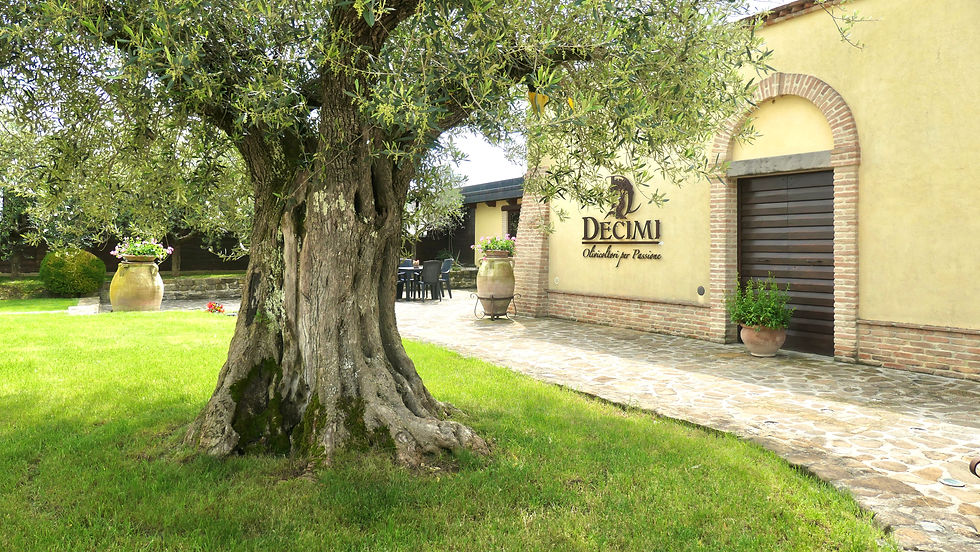
Graziano Decimi was born to make great olive oil, but his destiny did not reveal itself until he was 34 years old. It was then, in 2001, at a tasting of four high quality olive oils that he experienced an epiphany of sorts.
Something was awakened in him that made him want to discover everything he could about the world of premium olive oil. In Umbria, as in Tuscany, Italians use olive oil every day but no-one really discusses it or likes to pay very much for it and everyone believes that their local oil is the best, but in reality l'olio quotidiano bears little resemblance to the oil that Graziano tasted 23 years ago and even less to the Decimi olive oil that he makes today in Umbria.

Most olive oil producers in Italy, and also winemakers, inherit their land and business from their parents in a process that continues from one generation to the next, and this might have been the case too for Graziano but his grandfather's 1,000 olive trees were devastated in the terrible freeze of 1956 so all that his father ultimately inherited was a solitary hill with just 50 trees.
Graziano therefore grew up with no tangible connection to his native soil and instead learned the construction trade from his father and opened his own business restoring old properties in Umbria. He applied himself to this for a decade until that fateful day in 2001 when he discovered his true calling.
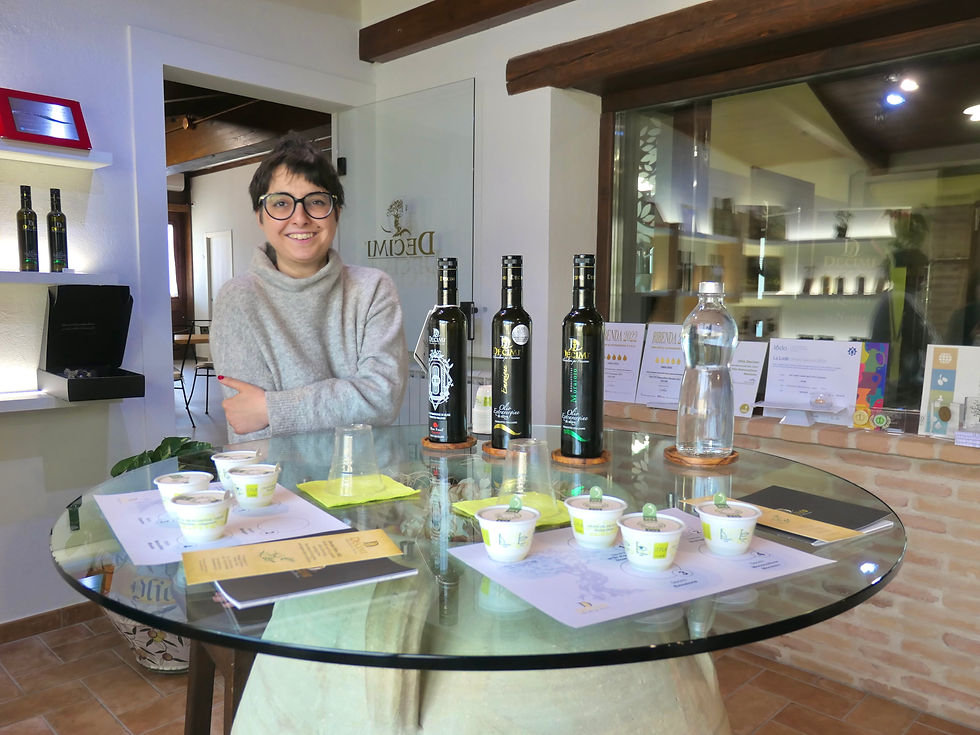
Virtually overnight olive oil became his obsession and for the next three years he devoted all his spare time to the study of premium olive oil. He knew from the outset that he wouldn't be happy until he could make his own olive oil, but not simply good oil, it would have to be excellent, on a par with the very best olive oil in Italy.
In 2004 his inevitable change of career could be delayed no longer. Near to his birthplace of Bettona, not far from Assisi, he bought a small frantoio. It had old, dilapidated equipment but it was a start, and at the same time he also acquired five acres of olive groves near the Abbey of San Felice 20 miles away, that included some really ancient trees aged 500 years or more.

But premium olive oil doesn't magically appear just because you have a few years of theory under your belt. Even with good source material, Graziano's lack of experience and outdated machinery resulted in an olive oil that by his own admission wasn't fit for much more than lubricating the chain on his bicycle. But this chastening experience only served to make him more determined to succeed, though neither his family nor everyone else close to him were convinced and the other local olive oil producers thought him overambitious if not a little crazy.
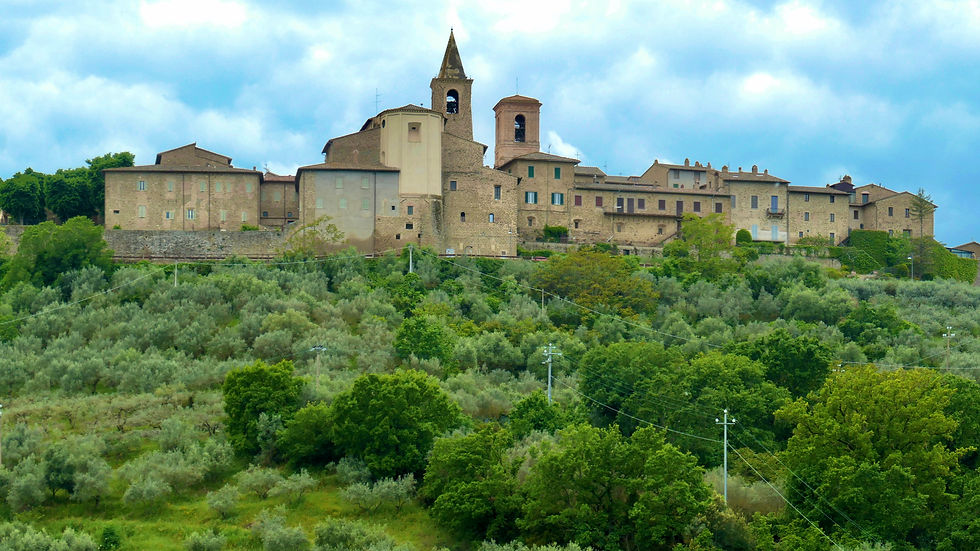
However they underestimated Graziano's drive and energy and his single mindedness to validate what had now become his reason for being. He set about upgrading the equipment in the frantoio and fine-tuning his skills, learning and improving with every harvest.
When he won his first national prize in 2008 his family and friends understood, perhaps for the first time, that Graziano's passion and ambition were now finally matched by his abilities. He was no longer just a dreamer with lofty goals but someone who had developed the wherewithal to achieve his dreams.
The large Etruscan stones incorporated into the 14th century wall around Bettona
But in reality Graziano was just getting started and was still nowhere near where he wanted to be. On the back of his first success he made a big investment in his family's future and significantly expanded and improved the frantoio attached to his house. Graziano doesn't view the frantoio as a separate entity but rather as an integral part of his home in the same way that a cook loves his kitchen and is at his happiest when he is in it.
When Graziano priced his award winning olive oil at 19 euros per half liter everyone thought he was out of his mind but he started to sell it to restaurants and they in turn offered it to their diners to taste, matched with appropriate food. These customers took note of the undeniable quality of Graziano's oil and began to arrive at the frantoio to buy some to take home. His olive oil had to sell itself because Graziano had no influential friends or contacts who could open doors for him. Word of mouth became by default his only selling strategy so he would brook no compromise in his pursuit of perfection.
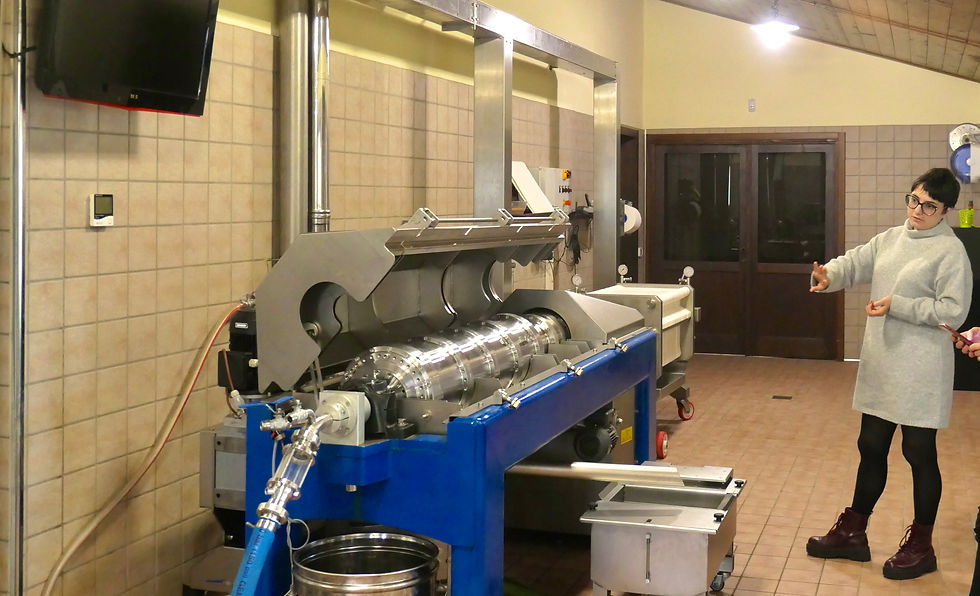
Today, the walls of the frantoio are covered in certificates attesting to the prizes that the Decimi olive oils achieve every year but nature can be a fickle partner and each harvest brings its own problems, not all of which can be easily overcome even by someone with the experience and talent that Graziano had now acquired. A case in point was the awful summer weather across most of Italy in 2014 and even though the Decimi oil won an award as the best olive oil in Umbria, Graziano was not happy with the quality and chose not to sell it as a premium oil.
Today, as one of the top producers of olive oil in Umbria, Graziano believes that he has a wider social responsibility to help and support other small olive oil enterprises in his locality, including those who once thought him crazy. The apprentice has now become the master and he is evangelical in his mission, almost as if to take the wonderful olives in this great territory and turn them into average oil would be a sin against nature.
It is this philosophy that impels him to take what the good Lord gives him every year and through dedication, knowledge and experience turn it into the purest and best olive oil possible. And to do this he has embraced the latest technology so that nothing is left to chance.
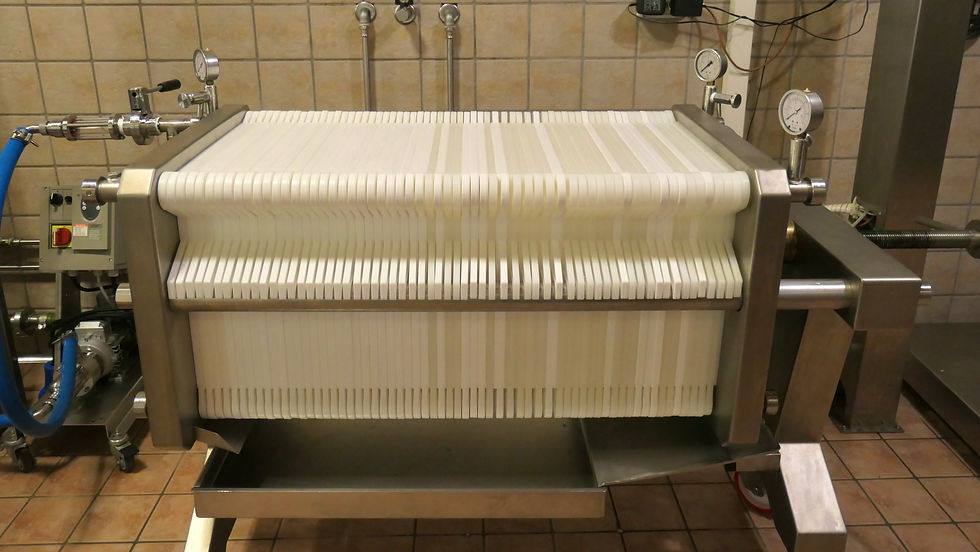
During the harvest in late October the hand picked olives are driven straight to the cold room in the frantoio and within a few hours are milled, beginning with a careful washing and defoliation. They are subsequently crushed using state-of-the-art equipment so the oil can be extracted in a natural and mechanical process, followed by a multi-layered filtering process that enhances purity even at the expense of losing some precious oil.
The finished oil is preserved in stainless steel tanks topped up with inert gas to prevent contact with the air and bottled when needed. It remains cool, dark and still to ensure that none of the freshness or natural polyphenols are compromised in any way.

Graziano now has approximately 7,000 trees across 57 acres in Bettona, Collemancio and Giano dell'Umbria, producing 12,000 liters of oil in a good year.
There are 4 different varieties of olives across these locations and each variety is milled separately with the blending process taking place at the end for the three different blended oils. The San Felice monocultivar and the No.51 Slow Food Presidium oil use olives from only one location in each case.
To keep the processing separate, whether by olive type or location, is a logistical challenge that calls for a very well organized operation at harvest time and even identifying the olive variety of a particular tree requires experience because many years ago a single olive grove was often planted to several different varieties in a somewhat random manner.
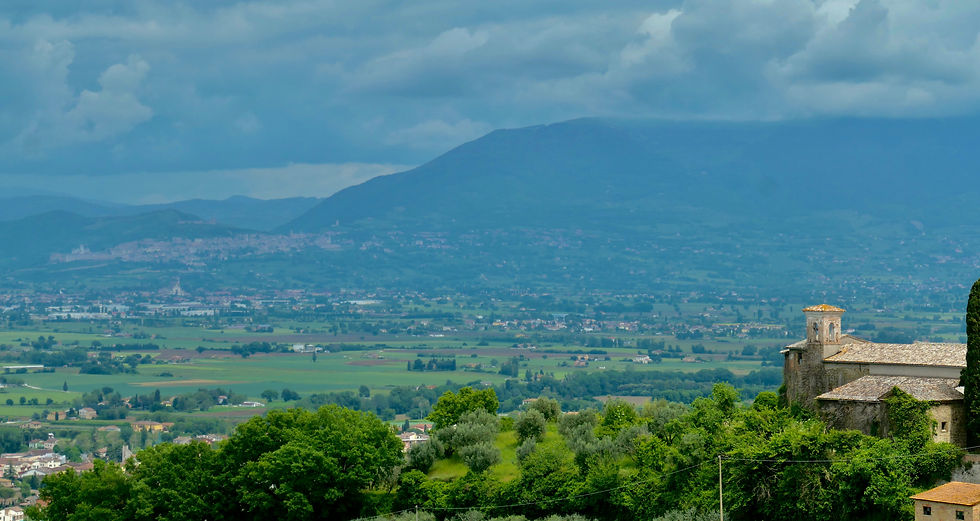
Education of consumers remains the single biggest challenge both within Italy and abroad. Olive oil is not as intuitive as wine where everyone has an opinion and a little knowledge. With olive oil ignorance abounds and most people have no idea about the difference between premium olive oil and the cheap bottle they reach for on the supermarket shelf; nor are many people even aware of the health benefits of the purest and highest quality extra virgin Italian olive oil, believing erroneously that all fats are created equal.
Graziano's Damascene moment happened in 2001 and all it took was a tutored tasting of high quality olive oil and likewise when I came to live in Italy a decade ago I made the same discovery which gave me an appreciation for the role of superb olive oil in a healthy diet and was to forever change my eating habits.
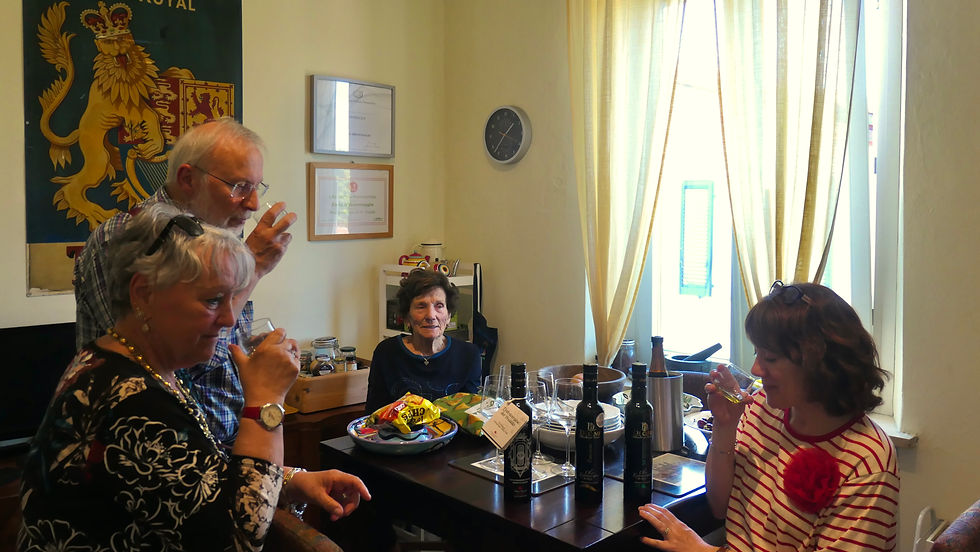
For our second tasting of the Decimi olive oils (above photo) at home in Lucca, Elena invited two other Florence natives who never buy olive oil from anywhere but Tuscany and they were both pleasantly surprised by the quality of all three oils and by the similarity of the Emozione blend to their favorite Tuscan olive oils.
Tasting Notes:
No. 51 Slow Food Presidium (blend of Moraiolo and other ancient varieties not all of which have been identified)
The olives are grown on a rather inaccessible hilly area, within the Decimi centenary olive grove at lot no. 51. (33 euros/50 cl)
This is an atypical olive oil for this territory. Quite delicate on the nose with herbaceous notes, it's a very elegant oil on the palate with a light almond bitterness that has a surprisingly spicy finish of green pepper. Best suited to seafood and white meat dishes and also could be used in the preparation of sweet desserts.
Emozione (blend of Moraiolo, Frantoio, Leccino and San Felice olives)
Winner of the 2024 Flos Olei prize for the best Blended Extra Virgin Olive Oil in the 'Intense Fruity' category. (24 euros/50 cl)
An intensely perfumed oil in which every cultivar plays its role in creating a complex but balanced flavor profile. Pronounced herbaceous and vegetable notes, especially thistle and artichoke, dominate the palate giving way to a punchy and quite spicy finish. A traditional Umbrian olive oil that marries well with the regional foods of Umbria and can be enjoyed also on a simple slice of good bread.
Moraiolo (monocultivar)
An ancient olive type that is indigenous to Tuscany, but now associated more with Umbria where it typically produces the best oil in the eastern corridor between Assisi and Spoleto. (27 euros/50 cl)
A single variety olive oil that is very delineated and reveals every aspect of the Moraiolo olive. It opens with a full but balanced nose of fresh grass, spices and balsamic notes. On the palate it's very fresh, with the bitterness of arugula and a pronounced spicy finish. To be enjoyed with robust, flavorful foods where the freshness of this oil will elevate complex dishes.



